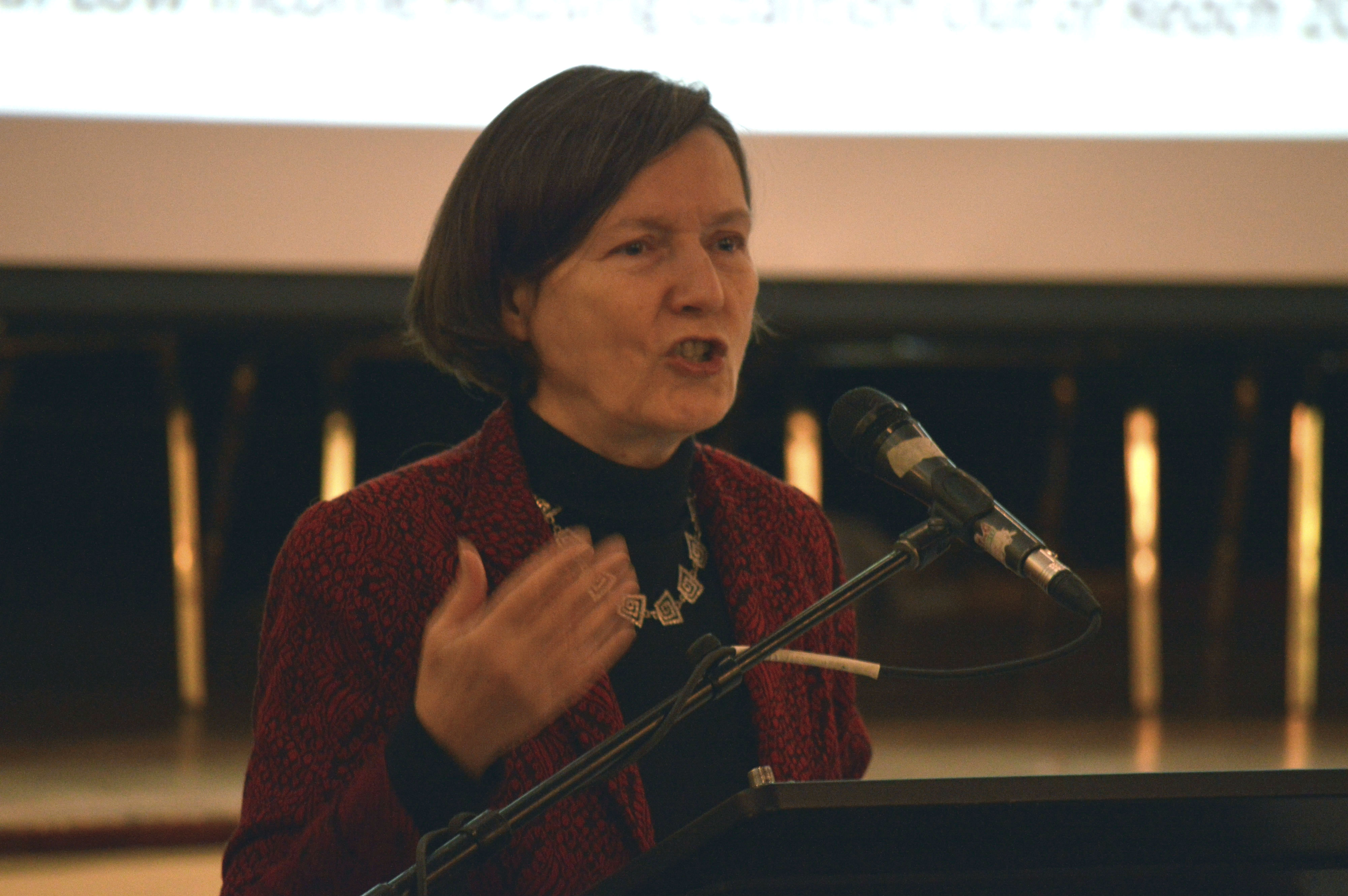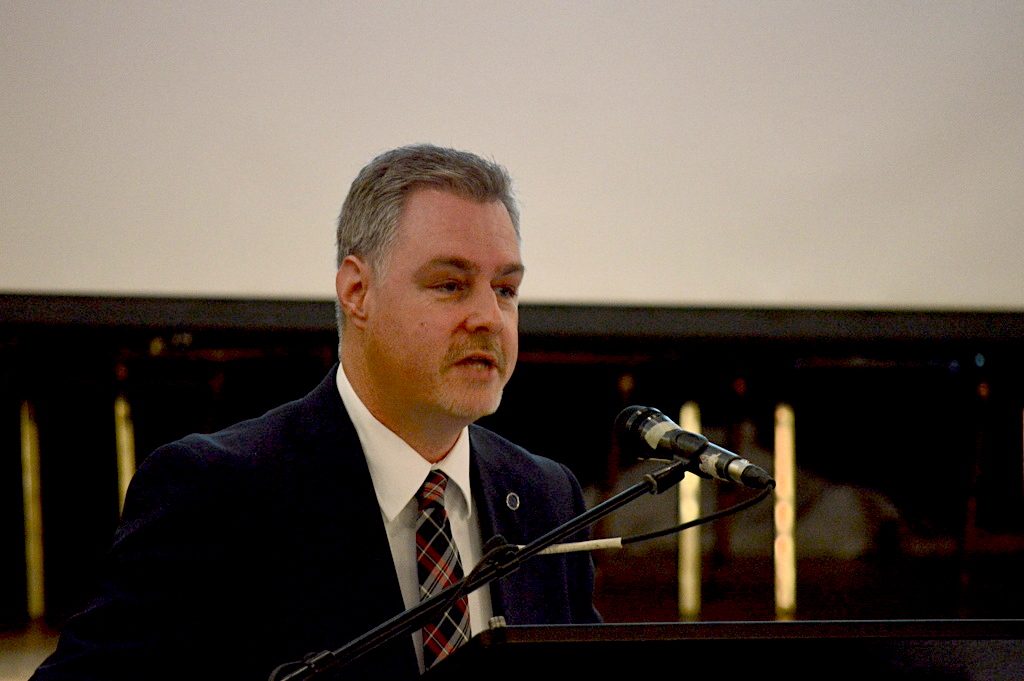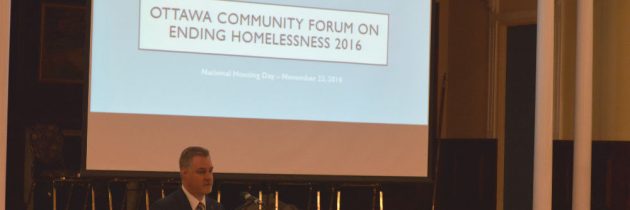City leaders meet to discuss ending homelessness in Ottawa
The way to fix homelessness is to permanently subsidize housing for the poor, a community forum on ending homelessness heard today.
Professor Marybeth Shinn from Vanderbilt University used a keynote speech at the 13th annual Community Forum on Ending Homelessness to make a plea for affordable housing.
“Homelessness for families in the United States is really a housing affordability problem,” Shinn told hundreds of workers from the public and private sector. “You fix the housing affordability problem, you fix homelessness.”
Data retrieved from Alliance to End Homelessness Ottawa’s Annual Progress Reports
The “intervention” of permanent subsidies was one of many different options explored as part of the research conducted by the Family Options Study in the United States. The federally-funded project compared the effectiveness of different interventions for homelessness. But subsidies, Shinn admitted, are not a new idea.
“Some of the lessons are not so surprising; so you give people housing subsidies and that fixes homelessness,” Shinn said dryly to chuckles from the audience.
Shinn was quick to point out that there were “benefits that radiated beyond housing stability” that emerged from the permanent subsidy experiment. According to Shinn, the study indicated a reduction in substance abuse, partner violence and psychological stresses that contribute to homelessness.

Professor Marybeth (Beth) Shinn detailed the findings of the Family Options Study in her keynote speech on Tuesday. Photo by: Matthew Olson
“The study suggests a clear winner among interventions for families experiencing homelessness in the United States,” Shinn said. However, the professor admitted that she wasn’t sure how these results might apply to services in Canada, saying, “you’ll have to tell me.”
Deputy Mayor Mark Taylor, who acts as the City of Ottawa’s Special Liaison on Housing and Homelessness, said he believes there are already good programs in place.
“Right now, the scenario that exists is we are supporting people across a whole variety of different needs, so someone might receive a subsidy for transit – we’re bringing in a low-income transit pass in Ottawa – they might receive a subsidy to send their kids to school,” Taylor said. “They might collect a couple of meals a month from the Food bank – so in a sense, they’re receiving a subsidy on food.”

Deputy Mayor Mark Taylor opened National Housing Day on behalf of Mayor Jim Watson at the forum. Photo by: Matthew Olson
“Beth Shinn’s principle of ‘housing subsidies work’ comes as no surprise. In fact, we’re looking at taking it a step further and saying ‘life subsidies’ can sometimes be of a real benefit, especially to a family.”
It is this kind of talk that makes the annual forum so important, said Executive Director Mark Bulthuis from the Alliance to End Homelessness Ottawa.
“I often describe the day as… a dialogue between researchers and practitioners, the folks who are on the front lines doing this work day in and day out and wanting to make sure they have access to the latest research,” Bulthuis said, adding that researchers also needed to be aware of “local realities” in the city.
But for Bulthuis, there is always more work to be done.
“I think we’re moving in the right direction,” Bulthuis said. “I think there’s lots of reasons to be optimistic right now; some of that just has to translate to new investments to help us work.”

